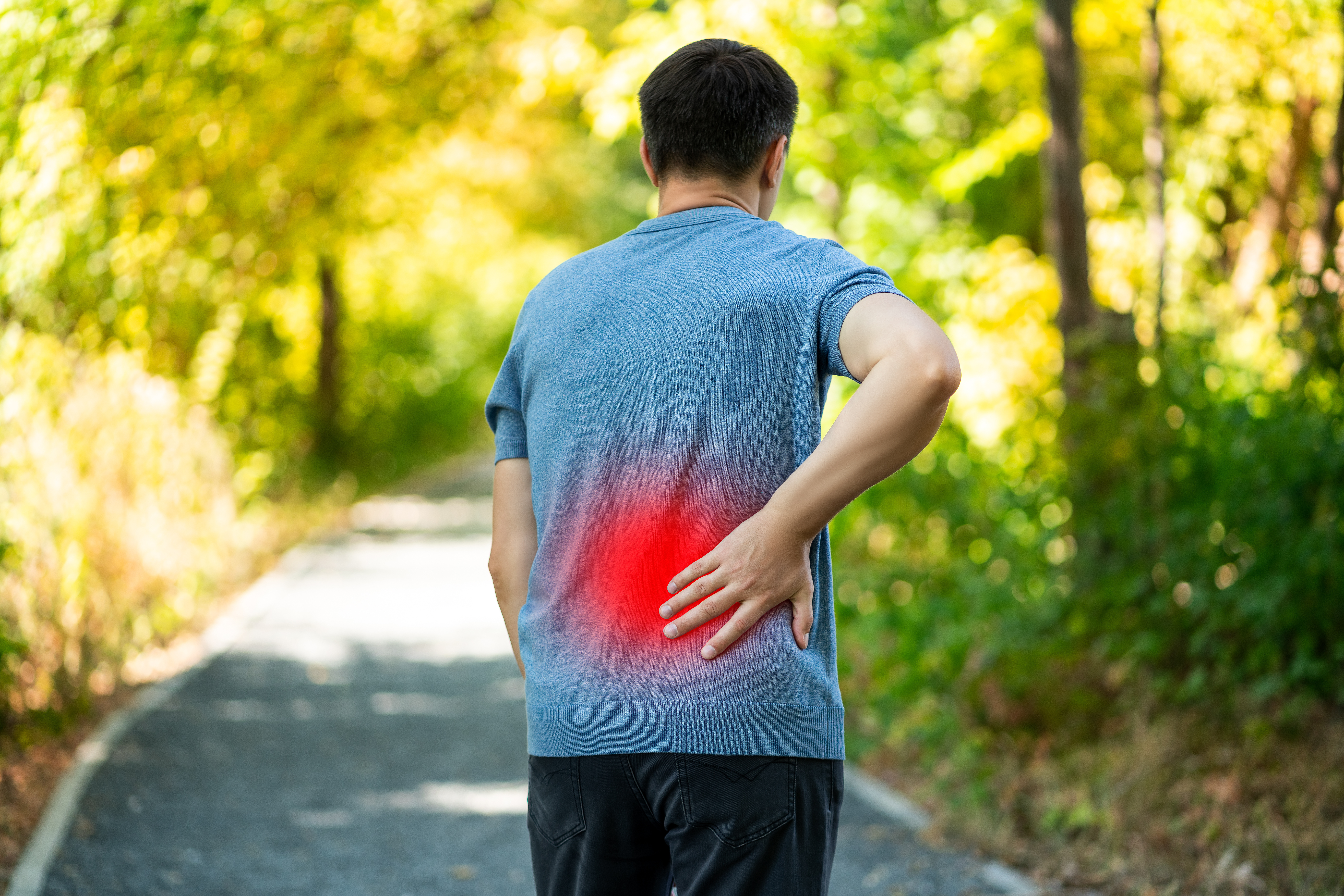Not sure whether your pain points to a bulging disc vs herniated disc? You’re not alone. These two spine conditions share overlapping disc injury symptoms, but the cause, imaging findings, and best next steps can…
Various reasons may cause lower back or neck pain, but you could be dealing with spinal stenosis when accompanied by other symptoms. Knowing what stenosis is, what symptoms are associated with this condition, and understanding that treatments are available will help alleviate the effects of stenosis and improve your quality of life.
You don’t have to deal with symptoms of stenosis by yourself. Instead, contact our spinal stenosis experts at Orthopedic & Laser Spine Surgery to discuss the symptoms you’re having and the treatments available. We can apply the latest research, technology, and treatments to your stenosis condition.
What Is Stenosis and What Causes It?
Spinal stenosis is a condition usually caused by the gradual shrinking or narrowing of the central spinal canal or any additional openings, called foraminal canals, that allows nerves to branch out from the spinal cord to other body parts. Narrowing these canals in any part of the spine leads to pinched nerves that can create various issues. Shrinkage or narrowing can occur because of the following conditions:
- Osteoarthritis or rheumatoid arthritis of the spinal column and discs between the vertebrae
- The thickening of back ligaments or facet joints
- Bulging or herniated discs
- One vertebrae slipped forward on another
- Tumors
- Traumatic injury
Because four spine regions, the cervical, thoracic, lumbar, and sacrum/coccyx regions, are susceptible to stenosis, you may experience many different symptoms affecting many body parts. However, spinal stenosis usually appears in the lumbar spine, which affects the lower portion of the body and cervical spine, which supports the weight of the head and allows neck and head movement.
Symptoms of Spinal Stenosis
Stenosis in the lumbar spine can pinch nerves affecting the lower back, legs, bowel, and bladder. A pinched nerve in the cervical spine can cause symptoms in the neck, hands, arms, or fingers. Here are some examples of symptoms that patients can experience:
- Pain in the lower back
- Neck pain
- Numbness
- Tingling
- Cramping
- Weakness
- Impaired bowel, bladder, or sexual function
- A burning pain or ache that radiates down the buttocks and into the legs
This burning pain or ache in the buttocks and legs is usually worse when walking or standing but may be relieved by leaning forward, sitting, or lying down. Pain can also be determined to be improved when walking up a hill but worse when walking down one. People may not experience any symptoms as stenosis develops or progresses over time, while others may encounter some or all of these symptoms.
Can Spinal Stenosis Affect Your Ability to Walk?
Spinal stenosis can affect one’s ability to walk. The pressure that this condition places on your spine can cause a variety of symptoms, including pain, weakness, and difficulty with coordination and balance.
In some cases, spinal stenosis can make it difficult to walk or stand for long periods of time, and can also cause a loss of sensation in the legs or feet. If you are experiencing any of these symptoms, it is important to see a doctor for a proper diagnosis and treatment plan.
How Can Spinal Stenosis Be Treated?
Stenosis can’t be cured, but some nonsurgical treatments can be applied to provide relief from stenosis symptoms. If you are made aware of your stenosis in its early stages, traditional treatments should help your condition. Some remedies may include:
- Exercise to build and maintain strength in your arm and upper leg muscles
- Physical therapy
- Chiropractic adjustments
- Anti-inflammatory non-prescription or prescription analgesics
- Epidural or cortisone injections in the areas around the spinal cord
However, if these treatments aren’t working for your stenosis or your condition has worsened, surgery may be the only option. For example, spinal fusions, medial facetectomies, foraminotomies, or laminotomies, are options that will strengthen and stabilize the spine, create openings or enlarge spaces in problem areas, and remove excess bone or degenerative discs to make space for the nerves.
Let the Florida Spinal Health Doctors at Orthopedic & Laser Spine Surgery Help
When you can’t enjoy activities and your quality of life has diminished because of spinal stenosis, see the Orthopedic & Laser Spine Surgery spinal health experts. They can provide non-surgical or surgical measures that will help lessen the pain and symptoms associated with the condition.
The award-winning surgeons and medical staff at OLSS specialize in minimally-invasive procedures and pain management. We can apply the best methods that will treat your stenosis and symptoms. If you’re experiencing stenosis symptoms, call us at (855) 853-6542 or complete our contact form to access the latest research, technology, and treatments for your stenosis condition.

